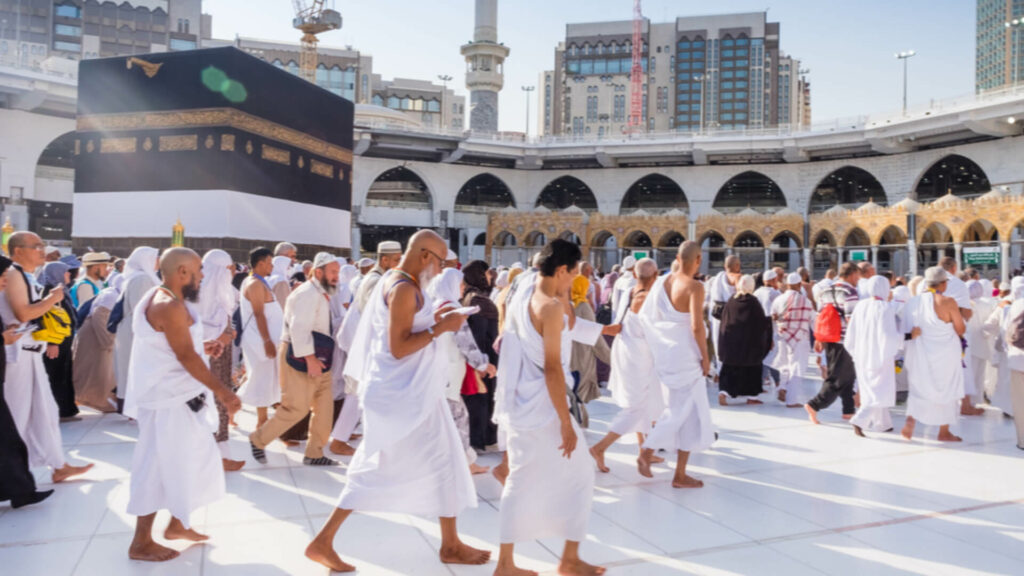Washington, D.C. – Former President Donald Trump has stirred debate with the announcement of two notable appointments to the newly established Advisory Board of Lay Leaders under the Religious Liberty Commission: Ismail Royer and Shaykh Hamza Yusuf.
The White House unveiled the appointments on Friday, highlighting the duo’s roles in promoting religious dialogue and protecting faith-based freedoms. Yet, the decision has prompted backlash from critics, particularly conservative activist Lara Loomer, who claims both individuals have controversial pasts with alleged connections to extremist views.
Ismail Royer: From Conviction to Advocacy
Once known as Randall Todd Royer, Ismail Royer converted to Islam in 1992 and immersed himself in Islamic scholarship and advocacy. He is currently the Director of the Islam and Religious Freedom Action Team at the Religious Freedom Institute, a role in which he promotes interfaith cooperation and religious liberties.
READ MORE: US Muslim Organization Praises Court’s Decision to Free Detained Georgetown Scholar
However, Royer’s past remains a point of contention. In 2004, he pleaded guilty to charges related to providing support to a terrorist organization, specifically for facilitating access to a Lashkar-e-Taiba (LeT) training camp in Pakistan. He was sentenced to 20 years in prison but was released in 2017 after serving 13 years.
Since his release, Royer has publicly denounced extremism and has focused on initiatives supporting peaceful religious engagement. The White House’s announcement emphasized his reformed path and current work in promoting religious tolerance.
Shaykh Hamza Yusuf: Scholar or Controversial Figure?
Shaykh Hamza Yusuf, a prominent Islamic scholar and co-founder of Zaytuna College—the first accredited Muslim liberal arts college in the U.S.—is also among the appointees. Known for advocating traditional Islamic values and interfaith dialogue, Yusuf has held advisory roles in both academia and government, including serving on the State Department’s Commission on Unalienable Rights during Trump’s tenure.
Despite his respected status in Islamic and academic circles, Yusuf has come under fire for past statements and alleged associations. Critics such as Loomer have pointed to his involvement in a 2001 fundraiser for Jamil al-Amin, a figure later convicted of killing a police officer. Reports indicate Yusuf made critical comments about the U.S. justice system at the event, suggesting that al-Amin was being framed.
Further criticism stems from his 1990s comments at Islamic conventions, where he reportedly condemned U.S. foreign policy and voiced support for figures like Sheikh Omar Abdel-Rahman, who was later convicted of conspiracy in a terror plot targeting New York City landmarks.
In the aftermath of the 9/11 attacks, Yusuf was reportedly questioned by federal authorities over past rhetoric deemed sympathetic to extremist ideologies. Despite these controversies, Yusuf remains a well-known voice of moderation in Western Islam, consistently emphasizing the importance of peace, unity, and interfaith respect.
Political Fallout and Public Response
While the Trump administration highlighted the appointments as a step toward broader religious inclusion, the backlash reveals persistent tensions surrounding Islam, national security, and political representation. For many, the debate raises questions about rehabilitation, redemption, and the fine line between advocacy and extremism.
Supporters argue that both Royer and Yusuf represent a nuanced and evolving Muslim-American voice—one shaped by experience and committed to fostering religious liberty. Opponents, however, warn of the risks of legitimizing figures with controversial histories.
As public debate unfolds, the spotlight remains on whether these appointments will advance the cause of religious freedom—or reignite old tensions.



